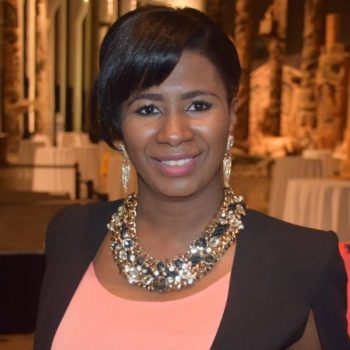
Black Mermaid
by Ketcia Peters
The most famous nostalgia multinational, better known as Disney, has released the first official trailer of The Little Mermaid.
However, the sommeliers of the accuracy of Disney live action and the Fasci in defence of the memory of childhood of the nineties just CAN’T swallow the idea that their much-loved white little mermaid, in 2023, will be played by a BLACK actress.
I don’t even want to go back to the controversy of those who, in an attempt to hide their sincere and genuine racist annoyance, climb the mirrors improvising themselves as experts in Danish folklore, or Greek mythology.
I’d just like to remind you that mermaids in African folklore do exist.
Yet, the presence of blacks in imaginary or folkloristic roles, in particular in media, is thought of as an IMPOSSIBILITY.
Maybe, maybe, there’s been a cultural battle that is taking place for the supremacy of the “white fantasy” that wants to remain white and free to be Aryan and happy. Just maybe. In a world that is changing and is putting the role of whiteness as a unit of measurement for everything that seems normal, the white’s normality, we ought to fight for what’s truly right. It is from these things that we understand how much our gaze has been shaped by whiteness.
There has always been an order. The whites first.
Then all the others as a side dish.
And it is precisely from this point that this monstrous annoyance takes shape in seeing black actors out of the traditional roles that whites have always made up for them as criminals, underclass, slaves or funny foul-mouthed buffoons.
In the history of the West, it was necessary to whiten many saints and even Jesus Christ himself and the Madonna, to ensure that their Middle Eastern or African image could be more digestible and closer to the fantasies of the European white gaze.
And we didn’t have any problem accepting it.
Millions of people around the world believe that God looks like an old white man and that his son has ash blonde hair and two big blue eyes that make anyone blush.
We accepted that the creator of the universe was white. Indeed, they imposed it on us, especially in Africa, trying to eradicate millenarians who resembled us much more.
We accepted this too.
The whole world has as an example of beauty to pursue, that of whiteness.
The volume of business achieved by the sale of cosmetic products and aesthetic procedures for the “whitening” of skin and features that are defined as “ethnic” is around one billion dollars a year.
Because white is beautiful and there is no question about this. Right?
However, if Disney dares to remake the Little Mermaid by altering the colour of her skin, and re-adapting a story for children to what are the needs of today’s children, that is not acceptable. It is instead absurd and obscene.
Yet, I loved the Little Mermaid as she was back in the day. White.
But the “little girl” who lives inside me and who still allows me to cry, shed several tears when she saw herself. For the first time. And it was like being small and innocent, but with a chance, with a change. Born anew. Represented anew.
Decolonizing the fantasy will always piss off a lot of people, this is crystal clear. But this is the natural course of the history of this company, Disney, that FORTUNATELY changes.
Fantasy is Power. And whoever lashes out with such violence against such a product knows it. He knows that whiteness is becoming more and more decentralised. And many don’t like this.
Well. Patience. Off you go. Even if what I truly mean is “fuck off!”
Better a black Ariel swimming in the Caribbean Sea, than Andersen’s original, in which the little Mermaid gets lost because the prince, who cares little or nothing about her, marries another one after a year.
If Disney really wanted to traumatize you, they should have just followed the original story. Andersen, the original author, who knew the burden of living in invisibility, would be happy to see his little mermaid as a talented young black woman. He wrote this fairy tale with the sole purpose of telling the impossible love of people who live their identity as a prison from which one can escape only by injuring the body in order to conform it to the expectations of others.
This is what Little Mermaid does by giving up her beautiful hair and tongue.
And that in turn is what many black girls do, who secretly dream of being able to whiten their skin, redo their noses and straighten their hair because that’s what society teaches you if love and approval are what you want to get.
A beautiful fairy tale, which as an adult black woman still makes me cry.
Ketcia Peters is an entrepreneur and community advocate for economic inclusion and development for Black Canadians and the social justice sector. Her firm, Ketcia Peters Group Inc. (KPG) provides bilingual organizational and human development services to the public and private sector. This includes analysis and coaching of HR practices, strategic planning, organizational change, equity and inclusivity, and anti-racism. KPG also provides individual and group coaching. In recent years, KP Group Inc. has shifted to greatly expand its equity, diversity and inclusivity work at the municipal and community level, with a focus on anti-racism and anti-oppression. This work centers on a trauma-informed approach in order to ensure we do not cause further harm to those most marginalized in our communities. Visit her website at: https://ketciapeters.com/
